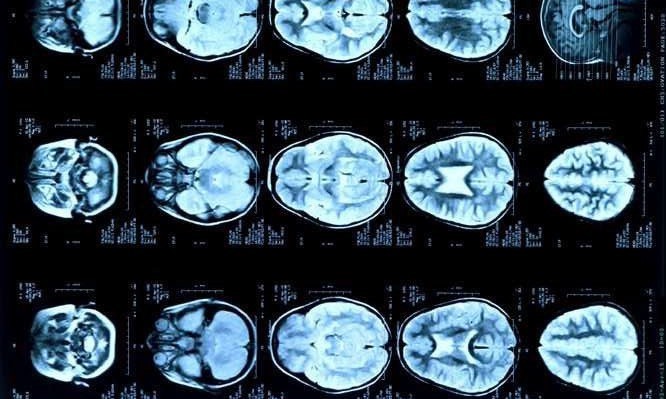By Briana Morgan
…a Forensic Psychologist.

By 2030 I would love to be a forensic psychologist. This particular STEM occupation requires the practitioner to apply their psychological knowledge and adroitness to the criminal justice system. Forensic psychologists may also initiate therapeutic interventions with the offender to further understand their cognitive and psychological functioning. This profession is necessary in modern society as it is crucial that convicted individuals are regarded with fairness and their current mentality is taken into account when dealing with the legal system.
The Role of a Forensic Psychologist
Forensic psychology is valuable in today’s society as science and technology are rapidly advancing, allowing the study of forensic psychology to better correspond with the legal system. The practitioner is responsible for many roles including: the treatment of inmates that possess a mental disorder, develop criminal profiles, allow insight on the offender’s mental functioning, perform psychological assessments, and even address any concerns regarding the criminal in court.
When analysing the behavioural, social and cognitive characteristics of the convicted individual, forensic psychologists conduct thorough research to develop psychological strategies and methods that will reduce the possibility of an offender reoffending. The forensic psychologist typically works in correlation with police officers, jails, correctional facilities, the victim and their family, and even the community that was affected by the crime committed. This way, they can collect relevant information regarding the criminal, including any factors that may have led to the crime, and develop strategies that may help the criminal rehabilitate and move forward. Various forensic psychologists work with juveniles.
My Early Interest In Psychology

Throughout my childhood, my parents were deeply interested in criminal psychological functioning. Their favourite show was ‘Criminal Minds’ as it thoroughly analysed and explained any factors contributing to an offender’s mentality. Listening in on these episodes, I had nothing but questions and even stated my own theories as I was so fascinated in psychology from such an early age!
Throughout my adolescent years, my interest in psychology has increased tremendously. Towards the remainder of year 9, I completed my transition into VCE (Victorian Certificate of Education) legal studies, and analysed various case studies involving the minds of Australia’s most notorious criminals.
Who would I like to work with as a forensic psychologist?
This particular occupation requires practitioner to work alongside many individual with different professions.

Personally, I would like to work with Ronald Roesch, a psychologist that specialises in the field of law & forensics and is the director of the Mental Health, Law, and Policy Institute at Simon Fraser University. Roesch is a highly successful forensic psychologist that has earned numerous awards including the Contributions to Psychology and Law Award from the American Psychology-Law Society and achieved the Lifetime Achievement Award for Contributions to Psychology and Law from the European Association of Psychology and Law. Roesch also led the International Association of Forensic Mental Health Services for approximately 2 years and published various books including ‘Competency to Stand Trial’ and ‘Psychology and Law: The State of the Discipline’.
Ronald Roesch is a highly experienced, highly recognised and highly credited forensic psychologist and working alongside him will benefit my psychological research and clinical applications as he has written many scholarly books and conducted substantial amounts of research that he can pass onto me and my work. Working with one of the world’s best forensic psychologists will not only be a huge honour, but will also widen my understanding of the criminal mind immensely.
What is a problem I’d like to solve?

Over recent years, many believe that an individual should serve the extent of their punishment in jail, regardless of their mental capacity. Unfortunately, in modern society, mental rehabilitation in jail and correctional facilities are limited as psychologists specialised in the field of law and crime are currently in demand. With further scientific and technological advancements, I believe I can educate humanity that criminals experiencing imbalances regarding psychological behaviour and functioning require full access to psychological facilities and their human rights, regardless of the crime they commit, for moral and ethical reasons. To do this, I will conduct thorough research regarding the brain structure and functioning of the criminal mind, but also study the chemical interactions happening within the brain. Even though the fact that the mind of a criminal differs from the rest of the population has been proven, the research I conduct in the future may potentially find a ‘cure’ or a medicinal treatment to stop reoffending and even first-time offenders from committing.
Combining my interest in psychology and law has allowed me to open my mind to the possibilities of solving problems and working with many scholars, all with different professions. I believe with my determination, I can make the world a better, safer place by improving the treatment of the world’s criminals and how we limit crime in the world.




 At the end of my life, I don’t want to be famous. I don’t want the media to cover my death and slander my name a few years after they praised me and all that I did. I only want to be remembered by a few: My friends, family and those I helped. I want to work in a STEM career that interests me and will allow me to help others. I want to work in a field that will ensure that I am constantly learning, growing and never in a dull moment. There are so many choices, but I will tell you of two near the top of my list.
At the end of my life, I don’t want to be famous. I don’t want the media to cover my death and slander my name a few years after they praised me and all that I did. I only want to be remembered by a few: My friends, family and those I helped. I want to work in a STEM career that interests me and will allow me to help others. I want to work in a field that will ensure that I am constantly learning, growing and never in a dull moment. There are so many choices, but I will tell you of two near the top of my list.
